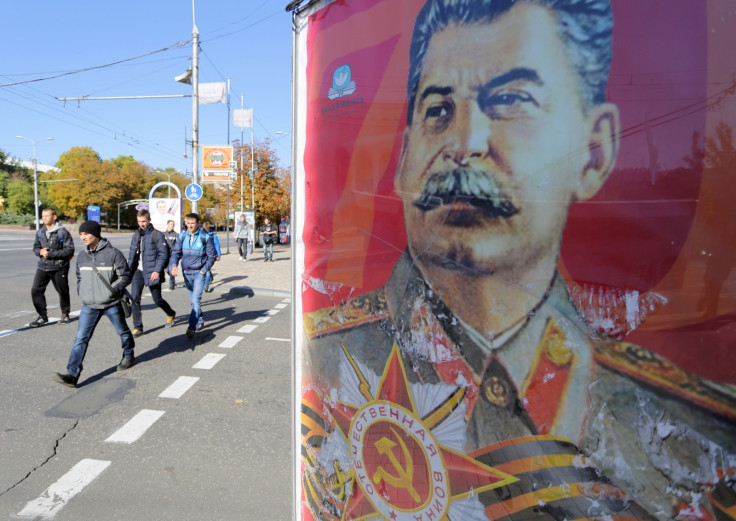British universities accused of 'luring' millennials towards communism
Professor Orlando Figes warns universities 'minimising' communist atrocities.

British universities are luring millennials into communism, a leading historian has warned.
Orlando Figes, professor of history at Birkbeck College, University of London, said the increasing drive for political and historical balance in universities could lead to minimising the atrocities committed by communist regimes.
"Even textbooks contribute to this way of thinking by saying things like Stalin needs to be understood in terms of pros and cons — he did good things like industrialise the country and bad things like the Terror," he was quoted as saying by the Times.
"That sort of moral equivalence is unhelpful because even the 'good' things he did were done with such rates of murder and destruction that they can't be counted as good."
Figes' comments were in reply to a Marxist student who claimed in a BBC interview that the only reason communism failed in the Soviet Union was because it did not have the "chance to develop".
Fiona Lali told Radio 4's Today programme: "It would be inaccurate and unfair to say that communism has failed because it hasn't actually had the chance to develop.
"In the Soviet Union, for example, you can't say that it was allowed to develop or flourish in the way that it could have done because the US, the British were all involved in attacking it. They have [still made] major gains. There's a lot of advantages, there's a lot of gains from the Soviet Union."
Most historians agree that more than one million people were killed during Joseph Stalin's "Great Purge" in the late 1930s and tens of millions perished in forced collectivisations and famines in the decades after communists took control of Russia in 1917.
Lali, who is the president of the Marxist Society at the School of Oriental and African Studies at the University of London, was invited on the show after research showed that young people consider capitalism a bigger threat than communism.
According to a ComRes survey, 24% of people aged between 18 and 24 view large businesses as a serious danger to the world, while 9% consider communism a major threat. That percentage drops to 6% among 25-34-year-olds, while those old enough to remember the Soviet era consider it a bigger threat than capitalism.
The findings substantiated figures published by the Marxist Student Federation, which showed over 3,000 students signed up to its societies across 32 universities in 2017.




















